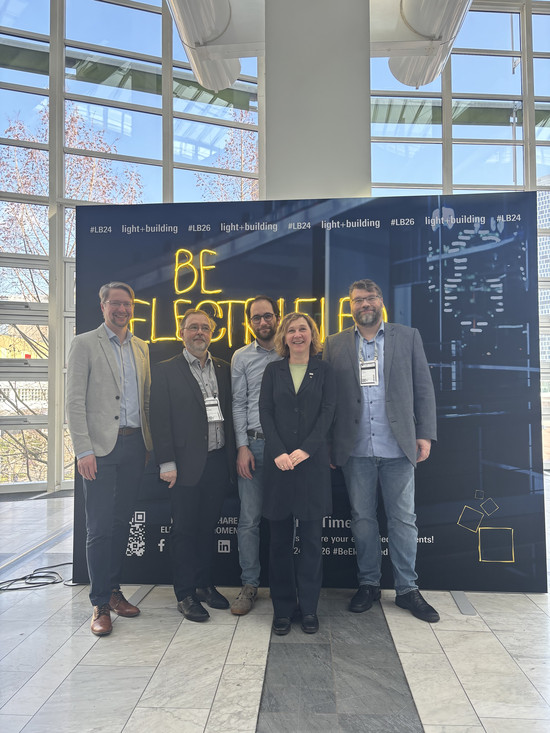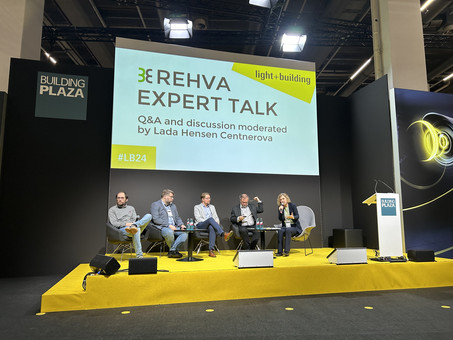Last week, REHVA had the pleasure of attending Light + Building 2024.
On Friday 8th March, REHVA hosted an Expert Talk focusing on "Data-driven Smart Building".
Among our speakers, we had the pleasure of welcoming Lada Hensen Centnerová, Risto K., Heikki Ihasalo, Pieter Pauwels and Henri Julsen!
Light + Building is the international industry meeting place for pioneers, planners, craftsmen, and decision-makers. The interconnection of lighting, design, building automation, facility management and security technology can be experienced here.
Risto Kosonen - Professor at Aalto University in Finland and REHVA Vice-President, described in his presentation "Demand site flexibility in buildings" the possibilities for saving energy and operational costs by using different control strategies. He also showed two use cases of energy flexibility in buildings and one in a small energy community and presented the audience with the saving results.
Our second speaker was Heikki Ihasalo - Professor of Practice in Smart Building Technologies and Services at Aalto University in Finland and director of Innovations at Granlund. His presentation "Machine learning in smart building operation" gave insights into different applications of Machine learning, from occupant level (using wearables) to neighbourhood level (waste heat utilization). He reflected on the advantages of using reinforcement learning and fault detection and diagnostics (FDD) in buildings.
The third speaker Henri Juslén - Chief future Illuminator at Helvar Oy Ab, in his presentation "Lighting networks providing new data insights for smart buildings" gave us a good overview of why and how the lighting in smart buildings can be controlled and what the unique cases by using past data, live data or predictions are.
The last speaker Pieter Pauwels - Associate Professor in Information Systems in the Built Environment at Eindhoven University of Technology in the Netherlands, gave a presentation called "From Connected to Automated Buildings", which showed us different data models and web technologies, used in the built environment. He explained what the possibilities of having building data available on the Web are so that individual smart buildings become connected smart buildings. He also talked about the element-based network of data which can support the design and operation of circular buildings.
At the end of the REHVA Expert Talk session, a discussion was moderated, where the speakers answered questions from detailed information about data storage solutions – geometry, semantics, or sensor data, to discuss the safety of occupants in buildings connected on the web or what are the consequences of EU policy on built environment. We ended the discussion with a conversation that tried to define which role REHVA could play in that process.

For those of you who could not attend the conference, we are pleased to share the different presentations given by our speakers:

